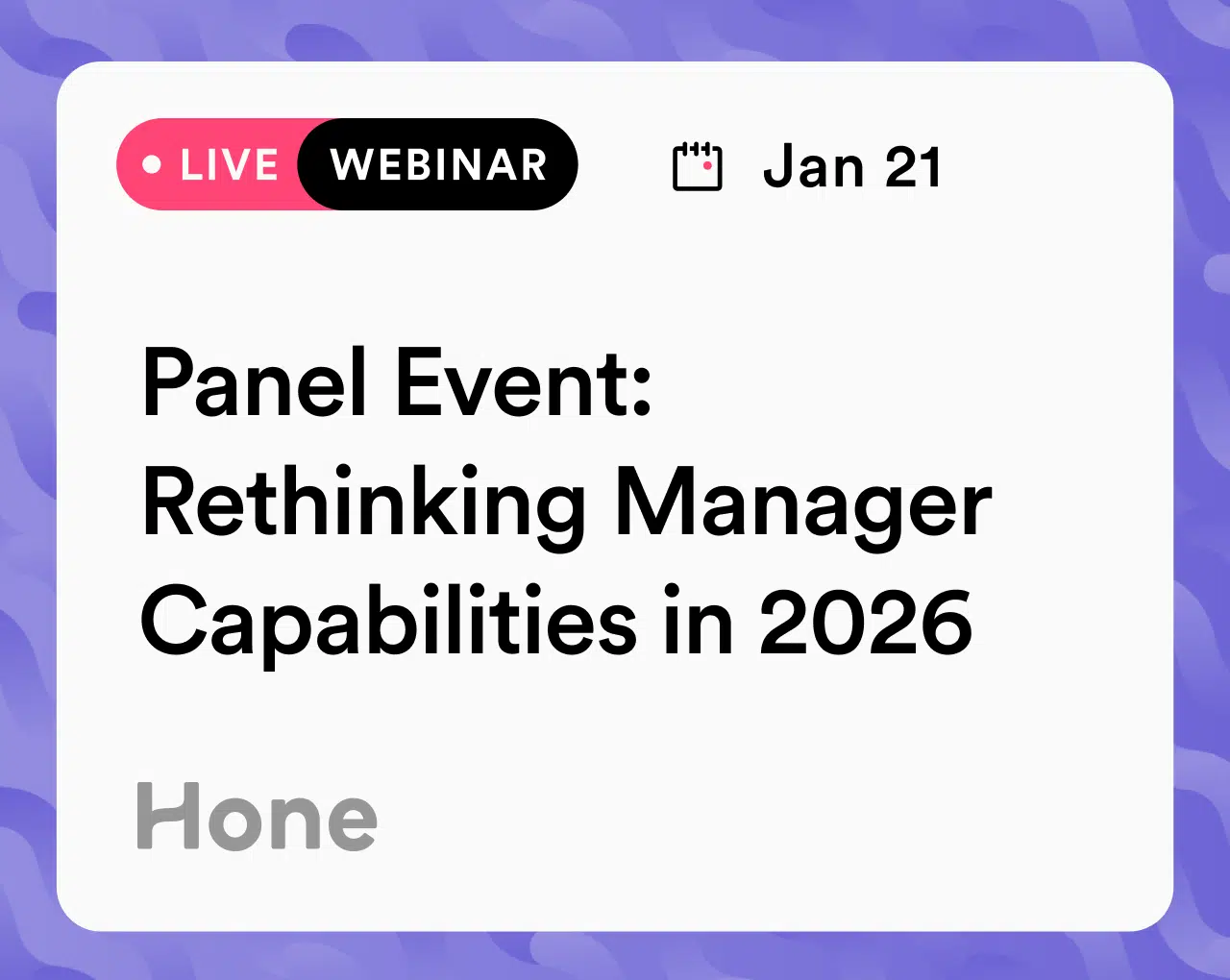AI coaching platforms represent the next evolution in employee development, combining machine learning, natural language processing, and behavioral analytics to deliver personalized, scalable coaching experiences. Unlike traditional learning management systems that distribute static content, today’s best AI coach for employee growth solutions provide dynamic, conversation-based guidance that adapts to individual needs and performance data.
The market opportunity is substantial. The AI in HR market is projected to grow from $8.16B in 2025 to $30.77B by 2034, representing a 15.94% CAGR. Meanwhile, cloud-based AI workforce solutions held 70.4% market share in 2023.
This comprehensive analysis evaluates 10 leading AI solutions for employee training based on coaching quality, outcome measurement, human and AI integration, and enterprise readiness. Our methodology prioritizes platforms that deliver measurable behavior change through blended approaches combining AI-powered personalization with human expertise for maximum impact.
What Is an AI Coach for Employee Growth
An AI coach uses machine learning, natural language processing, and analytics to deliver personalized, on-demand coaching, practice, and feedback that adapts to individual goals and performance data. These AI coaching for professional development platforms go beyond traditional training by providing contextual guidance, conversation simulations, and behavioral nudges that drive real-world application.
Supporting technologies include:
- Machine learning (ML): Algorithms that learn from data to make predictions or recommendations without being explicitly programmed
- Natural language processing (NLP): AI techniques that enable computers to understand, generate, and analyze human language
- Learning Management System (LMS): Software for administering, delivering, and tracking training content and courses
- Human Resource Information System (HRIS): A system that stores and manages employee data such as roles, skills, performance, and compensation
How AI coaching differs from LMS and mentoring platforms
AI coaching platforms fundamentally differ from traditional learning and mentoring approaches in purpose, experience, and outcomes.
AI Coach vs LMS: LMS platforms distribute and track courses; AI coaches personalize micro-interventions, simulate conversations, and provide real-time guidance tied to goals and behavior change. While an LMS focuses on content consumption, AI coaching emphasizes practice and application.
AI Coach vs Mentoring: Mentoring pairs people for long-term guidance; AI coaches scale personalized support, surface insights from data, and offer always-on nudges and practice opportunities.
Key differences include:
- Personalization depth: AI tailors content by role, skill gaps, and performance signals vs. generic learning paths
- Real-time practice: Conversation simulators and scenario-based coaching vs. passive course consumption
- Analytics: Continuous behavioral and outcome analytics vs. completion reporting
- Scalability: AI reaches entire workforces with consistent quality vs. limited mentor supply
- Availability: 24/7 access to coaching support vs. scheduled human interactions
Benefits of AI coaching for developing employee potential
AI coaching delivers measurable outcomes aligned to organizational priorities:
- Faster skill acquisition: Adaptive practice and feedback accelerate learning for communication, leadership, and role-based skills. Personalized scenarios help employees practice difficult conversations and receive immediate feedback.
- Higher engagement: Personalized nudges and on-demand support increase usage and completion over static courses.
- Manager enablement: Timely prompts and guides help managers coach better in 1:1s. AI provides conversation starters, feedback frameworks, and follow-up reminders.
- Operational efficiency: AI automates matching, reminders, and feedback synthesis, reducing admin overhead while maintaining coaching quality.
- Scalable equity: Standardized, always-available coaching supports equitable access across locations, ensuring consistent development opportunities regardless of geography.
These AI coach options for skill enhancement demonstrate particular strength in communication skills, leadership development, and manager effectiveness programs.
Where human coaching remains essential
Despite AI capabilities, human expertise remains critical for specific scenarios:
- Sensitive topics: Career inflection points, psychological safety, and complex conflict require human empathy and judgment. AI cannot replace the nuanced understanding needed for personal crises or major life transitions.
- Senior leadership coaching: Nuanced stakeholder dynamics and identity-level growth benefit from experienced human coaches who understand executive challenges and organizational politics.
- Culture change and team dynamics: Facilitated group work, live feedback, and context-aware interventions remain human-led. Complex team conflicts and cultural transformation require human facilitation.
The optimal approach combines AI for scale and consistency with humans for depth, nuance, and accountability.
Best AI Coaching Platforms for Workforce Improvement
We’ve grouped platforms into three categories: AI-native coaches, LMS with AI coaching features, and talent platforms with coaching capabilities. The following comparison highlights core capabilities and ideal use cases for the top six AI coaching platforms.
| Platform | AI Modes | Human Coaching | Integration Strength | Ideal Company Size | Key Differentiator |
|---|---|---|---|---|---|
| Hone | Chat, simulations, nudges | Live cohorts + 1:1 | HRIS/LMS/Productivity | Mid-market to enterprise | Behavior change analytics |
| BetterUp | Matching, tracking | Large coach network | Standard integrations | Enterprise | Well-being focus |
| CoachHub AIMY | Matching, recommendations | Global coaches | Multi-language | Enterprise | Global coverage |
| Skillsoft CAISY | Conversation simulations | Limited | Content ecosystem | Mid-market+ | Simulation depth |
| TalentLMS AI Coach | Recommendations, paths | Partner network | LMS-native | SMB to mid-market | Ease of deployment |
| Rocky.ai | Daily prompts, tracking | None | Basic | SMB | Cost-effective entry |
1. Hone
Overview: Hone delivers the most comprehensive blended human and AI coaching solution specifically designed for leadership development, manager enablement, and measurable behavior change at enterprise scale. The platform stands out for its sophisticated analytics and proven track record of driving measurable outcomes.
Signature AI capabilities: Hone’s advanced AI engine combines personalized practice scenarios, contextual nudges, and skill application support with industry-leading conversation simulations for difficult workplace situations. The platform’s proprietary AI analyzes employee and organizational data to surface highly personalized development opportunities and provides the most detailed behavior change tracking in the market.
Human element: Live, cohort-based sessions led by subject matter expert coaches address high-impact skills, like feedback, communication, and collaboration with exceptional quality. Hone’s unique AI reinforcement includes personalized practice scenarios and application nudges that demonstrate superior learning retention compared to traditional approaches.
Integrations: Best-in-class, enterprise-grade HRIS and LMS connectivity enables automated user provisioning and unified learning records. Advanced SSO, calendar integration, and productivity stack compatibility reduce friction while maintaining the highest security standards. Hone’s data controls exceed enterprise requirements with robust privacy protections.
Outcomes: Hone leads the market in measurable behavior change through comprehensive skill proficiency assessments and direct business impact metrics. Customer implementations consistently report significant improvements in performance directly attributed to training.
Ideal fit: Mid-market to enterprise organizations seeking the most effective leadership and manager capability building solution, with superior analytics that exceed industry standards and an array of AI and human-led learning experiences that maximize training’s impact.
2. BetterUp
Positioning: AI-augmented coaching and mental fitness programs combining behavioral science with a coaching network focused on holistic employee development.
AI features: Matching algorithms pair employees with coaches based on goals, personality, and development needs. AI tracks progress against personalized goals and provides insights to both coaches and participants.
Strengths: Comprehensive well-being and leadership domains with global scale. Large network of certified coaches provides diverse expertise and availability across time zones.
Considerations: Organizations should evaluate analytics depth for behavior change measurement in enterprise rollouts and confirm integration capabilities with existing HR systems.
3. CoachHub AIMY
Positioning: Enterprise coaching platform with AI matching (AIMY) technology and a global bench of certified coaches supporting multinational organizations.
AI features: AIMY algorithm matches employees with coaches based on goals, industry experience, and cultural factors. AI provides goal tracking and content recommendations throughout coaching relationships.
Strengths: Strong global footprint with multi-language support and cultural competency. Extensive coach network covers diverse industries and functional areas.
Considerations: Buyers should verify data protection for global deployments and evaluate analytics capabilities needed for ROI reporting across regions.
4. Skillsoft CAISY
Positioning: Conversation AI Simulator (CAISY) enables practice of communication and leadership scenarios within Skillsoft’s learning ecosystem.
AI features: Conversation simulations provide feedback on communication skills, leadership presence, and difficult conversation navigation. Integration with Skillsoft’s content library creates learning paths.
Strengths: Simulation technology offers practice environments. Content library supports diverse skill development needs across industries.
Considerations: Organizations should clarify coaching depth beyond simulations and evaluate integration requirements with existing HRIS and LMS systems.
5. TalentLMS AI Coach
Positioning: Learning management system with AI-assisted coaching elements that guide learners through personalized development paths and provide ongoing support.
AI features: Recommendation engine suggests relevant content and learning paths. AI coach provides guidance and answers questions throughout the learning journey.
Strengths: Rapid deployment and user-friendly interface. Cost-effective solution for organizations beginning their AI coaching journey.
Considerations: Buyers should distinguish between AI course guidance and true behavior change coaching. Evaluate analytics depth for measuring skill development outcomes.
6. Rocky.ai
Positioning: AI coaching chatbot focused on leadership habit formation and reflective practice through daily interactions and goal tracking.
AI features: Daily coaching prompts, goal setting assistance, and progress tracking through conversational interface. Personalized insights based on user responses and behavior patterns.
Strengths: Lightweight, accessible entry point to AI coaching. Cost-effective solution for small to medium businesses exploring AI-enabled development.
Considerations: Limited enterprise integrations and no human coach options. Organizations should validate security settings and data protection capabilities.
7. WorkRamp
Positioning: Learning platform with enablement focus that incorporates AI coaching modules and partner integrations for sales and customer success teams.
AI features: Content generation, personalized recommendations, and enablement workflows. Coaching elements focus on role-specific skill development.
Strengths: Go-to-market enablement use cases with industry-specific content and workflows.
Considerations: Buyers should confirm AI coaching depth beyond enablement and evaluate analytics capabilities for behavior change measurement.
8. Gloat
Positioning: Talent marketplace and skills platform that incorporates AI coaching elements for career mobility and development within internal talent markets.
AI features: Skills mapping, career pathing recommendations, and development suggestions. AI connects employees with internal opportunities and relevant learning.
Strengths: Advanced skills intelligence and internal mobility focus. Analytics for talent movement and development tracking.
Considerations: Organizations should clarify direct coaching features versus ecosystem partnerships and evaluate integration requirements with existing systems.
9. Cloverleaf
Positioning: Team coaching platform that provides automated insights and coaching tips based on assessment data and team dynamics.
AI features: Behavioral nudges based on personality and strengths assessments. Manager insights for team dynamics and individual coaching opportunities.
Strengths: Practical, ongoing team-focused coaching with actionable insights. Focus on manager enablement and team effectiveness.
Considerations: Buyers should confirm enterprise privacy controls and evaluate integration breadth with existing HR technology stack.
10. LearnWorlds
Positioning: AI-powered course creation platform with digital coaching capabilities and accessible pricing for small to medium organizations.
AI features: AI course builders, interactive learning experiences, and coaching add-ons. Content generation capabilities reduce time-to-market for custom programs.
Strengths: Rapid content generation and affordable entry point. Strong for organizations creating custom coaching content.
Considerations: Buyers should distinguish between course creation and coaching analytics capabilities. Evaluate integration depth with enterprise HRIS and LMS systems.
How to Choose the Most Effective AI Coach for Team Growth
Selecting the right most effective AI coach for team growth requires evaluating capabilities against organizational needs and implementation readiness.
Must-have features for AI coaches enhancing employee skills
Critical capabilities for AI coaches enhancing employee skills include:
- Personalized learning paths: AI tailors development to individual goals, role requirements, and performance signals rather than generic approaches
- Practice modalities: Chat-based coaching, conversation simulations, and role-play scenarios with immediate feedback
- Nudges and behavior prompts: Timely, contextual reminders that drive real-world application and habit formation
- Manager enablement: Frameworks and prompts that help managers conduct effective 1:1s and provide ongoing coaching
- Outcome analytics: Skill proficiency tracking, behavior adoption rates, and impact on performance KPIs
- Human + AI blend: Access to certified coaches for complex, nuanced topics and accountability
- Strong integrations: HRIS and LMS data synchronization for seamless user experience and unified reporting
- Multilingual and accessibility support: Global scale capabilities with inclusive design principles
Pricing models and total cost of ownership considerations
Total Cost of Ownership (TCO) includes licensing, implementation, integrations, content creation, change management, and ongoing support costs.
Common pricing models include:
- Per-seat or per-active-user: Scales with named or active users, typically ranging up to $500 per user annually
- Module-based add-ons: AI simulations, advanced analytics, or human coaching sessions priced separately
- Tiered enterprise agreements: Volume discounts with service level agreements for large deployments
Key cost factors include:
- Implementation scope: Integration complexity, data migration requirements, and SSO configuration
- Content strategy: Custom content development versus AI-generated curricula and existing content libraries
- Global support: Multilingual capabilities and accessibility compliance may affect pricing tiers
Organizations should frame ROI alongside TCO, connecting investments to engagement improvements, reduced time-to-proficiency, and enhanced manager effectiveness.
Analytics for measuring behavior change and ROI
Minimum analytics requirements should include:
- Leading indicators: Practice frequency, nudge response rates, coaching session engagement, and content completion patterns provide early signals of program effectiveness.
- Behavioral outcomes: Skill proficiency changes, peer and manager feedback trends, and skill application rates demonstrate actual behavior change versus activity completion.
- Business outcomes: Reduced ramp time, increased promotion velocity, improved retention rates, enhanced employee NPS, and increased productivity.
- Attribution models: Cohort analysis, baseline comparisons, and control groups help isolate coaching impact from other variables.
Platforms should provide dashboards and export capabilities that integrate with existing HR analytics and business intelligence tools.
Implementation Tips for AI Coaching in Professional Development
Successful AI coaching in professional development requires strategic pilot design and systematic scaling approaches.
Pilot design and change management for adoption
Pilot definition:
- Target audience: Select 1-2 high-impact populations like new managers or frontline leads
- Clear objectives: Define specific behavior change metrics and business outcomes with baseline measurements
- Enablement plan: Develop manager briefings, internal communications, and dedicated support channels
- Success criteria: Establish adoption thresholds, behavior change targets, and leading indicator benchmarks
Change management essentials:
- Executive sponsorship: Secure visible endorsement and active participation from senior leaders
- Moments that matter: Embed coaching nudges into existing workflows like 1:1s and team meetings
- Feedback loops: Implement both qualitative and quantitative data collection to enable rapid iteration
Blending human and AI coaching for high-impact skills
Optimal blended models follow this framework:
- AI for scale: Personalized practice scenarios, behavioral nudges, and data-driven insights that reach entire populations consistently.
- Human for depth: Complex scenario navigation, accountability partnerships, and culture shaping through live individual or group sessions.
- Reinforcement loop: AI extends learning post-session through personalized practice opportunities and application measurement over time.
This approach proves particularly effective for leadership development, communication skills, performance conversations, and change management capabilities.
Conclusion
The AI coaching platforms landscape offers diverse solutions for transforming employee development, from AI-native coaches to integrated LMS capabilities. Success depends on selecting platforms that balance technological sophistication with human expertise, delivering measurable behavior change rather than just activity completion.
The most effective implementations combine AI-powered personalization and practice with human coaching for complex scenarios and accountability. Organizations should prioritize platforms offering robust analytics, enterprise-grade security, and seamless integrations with existing HR technology stacks.
As the AI in HR market continues its rapid growth toward $30.77B by 2034, early adopters will gain competitive advantages through faster skill development, improved manager effectiveness, and more engaged workforces. The key is choosing solutions that prove impact through measurable outcomes while scaling consistently across global organizations.
Frequently Asked Questions
How do AI coaching platforms handle data retention and model training on our data?
Enterprise AI coaching platforms typically offer configurable retention policies and opt-out controls for using your data to train shared models. Verify security documentation for encryption standards, model isolation options, and GDPR/CCPA compliance during vendor evaluation.
How do AI simulations compare to chat-based coaching for communication skills?
AI simulations provide realistic scenario practice with immediate feedback on specific situations like navigating difficult conversations or coaching employees. Chat-based coaching delivers ongoing guidance, reflection prompts, and personalized development planning. Hone combines both modalities with live cohort sessions, maximizing behavior change through practice, ongoing AI support, and human accountability.
What integrations matter most for fast rollout with existing HR systems?
Prioritize SSO for seamless authentication, HRIS profile sync for automated user provisioning, LMS data exchange (SCORM/xAPI) for unified learning records, and calendar/messaging integrations for workflow embedding. Hone supports major HRIS platforms like Workday and SAP SuccessFactors, plus productivity stack integration to reduce administrative overhead and increase adoption rates.











